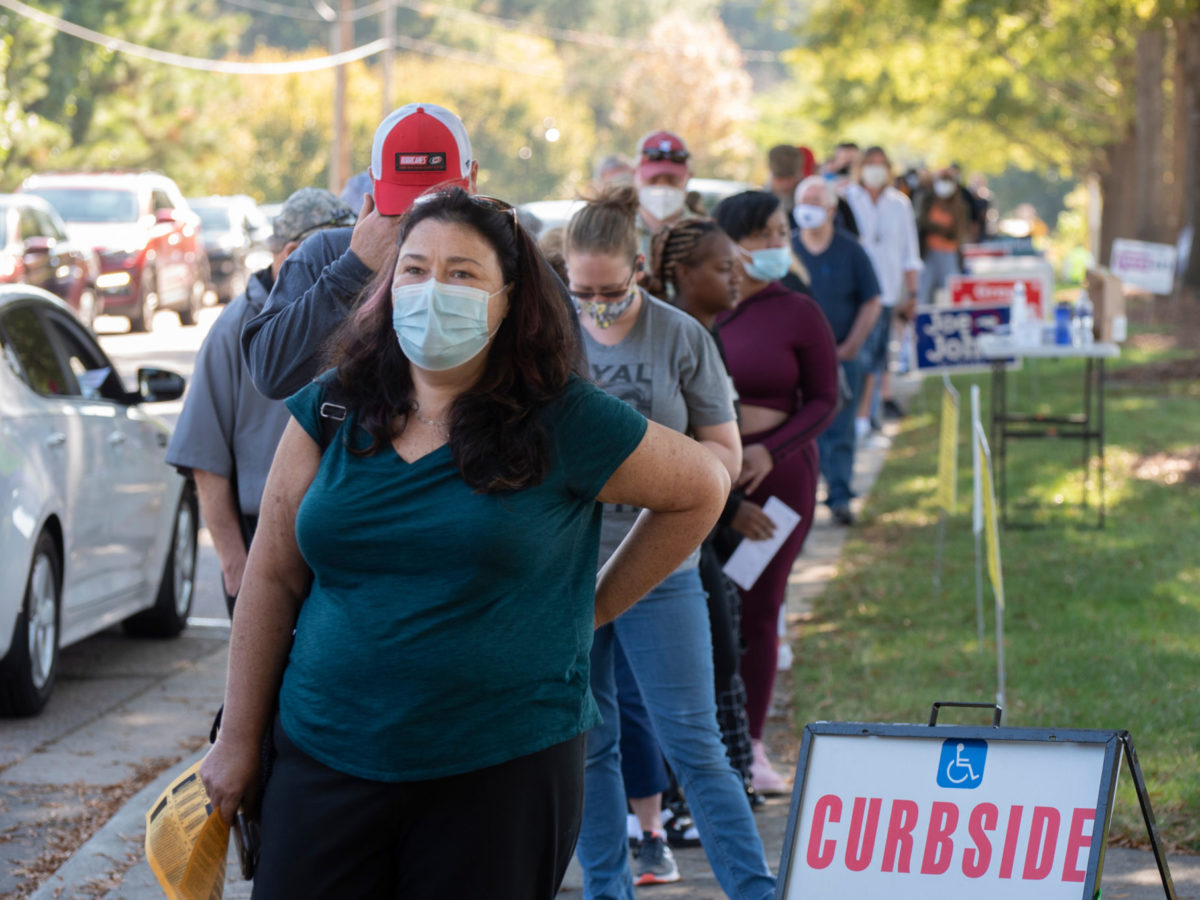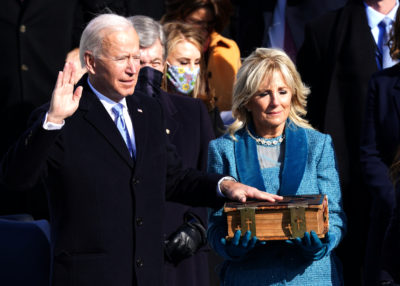

The two-year legislative cycle of the North Carolina General Assembly customarily opens with aspirations mixed with anxieties, with hopes raised for consensus on difficult issues but with a backdrop of a fractious electorate. The 2021-22 legislature got down to business this week amid a persistent pandemic, economic and educational uncertainties, and national political tumult.
In assessing the condition of state government in winter 2021, you begin with the question: What have the 5.54 million North Carolina voters wrought with the ballots they cast in fall 2020?
The easy answer is a renewal of divided government. Voters elected Democratic Gov. Roy Cooper to a second term. The Council of State, composed of statewide elected officials, has six Republicans and four Democrats. Voters also configured a legislature with a 27-23 Republican majority in the Senate and a 68-52 Republican majority in the House — enough for Republicans to control leadership positions and committees, but not enough to override vetoes by the governor.
The easy answer is not necessarily the complete answer. In an election with a record-setting turnout of 75% of registered voters, most North Carolinians actually voted for unified party governance. The rub is, about half voted to put Republicans in charge, about half to give Democrats control.
In the presidential race, Republican Donald Trump out-polled Democrat Joe Biden by around 74,000 votes — 2.75 million to 2.68 million. In general, statewide elections fell within a range from 2.8 million to 2.5 million votes between winning and losing candidates of both parties. The evidence suggests that more than 90% of voters cast total or near-total straight-ticket ballots. Only a small sliver of the electorate split their ballots between parties, resulting in slender majorities for both Democrats and Republicans from race to race.
Moreover, each voter can influence the election of only two state legislators — one in the House, one in the Senate. Even with revisions required by court rulings in gerrymandering cases, most districts remained identifiably Republican or Democratic.
In an exchange of emails, Bob Phillips, state director of Common Cause, provided illuminating data: Among the 50 Senate-district elections, 31 resulted in a lawmaker winning by 20 percentage points or more. In the House, 92 of 120 elections were won by 20 points or more. Most legislators faced no or only token opposition.
In North Carolina 2021, almost all voters join distinctively Republican-red or Democratic-blue coalitions. Most do not and cannot purposefully set out to create a partisan balance that drives toward consensus in a moderate middle.
What’s more, national politics does not stop at the state line. The old truism that all politics is local has become just that: old, out of date. A tense post-election period of recounts and recriminations — culminating in a riot at the Capitol, a second impeachment, and Biden’s inauguration — has raised profound questions for both major parties.
Can the new president hold his Democratic coalition together while responding to the pandemic and attempting to take heat out of what he called the nation’s “uncivil war”? What kind of Republican Party will emerge with several hundred of its elected officials and millions of its voters still contending, without factual evidence, that Trump actually won?
“Is America ungovernable now?” veteran journalist Thomas B. Edsall asked in his weekly column in The New York Times. He drew on an array of historians, political scientists, and sociologists to examine social conflict and polarization. He quoted Theda Skocpol of Harvard in describing deep-down pressures in U.S. public life:
“The key dynamic in U.S. politics right now is political civil war dividing the white middle strata between those who want to be part of a multiracial, inclusive future, and those who fear and refuse that.”
Is North Carolina ungovernable now? Surely not, one hopes. It’s important that democracy prevails and responds to its economic, educational, health, and environmental issues.
Governing as robust and diverse a state as North Carolina these days requires elected, civic, and education leaders who comprehend its complex political landscape, who not only listen to their constituents but also adhere to facts, and who avoid exacerbating the uncivil war while investing pragmatically in the future.


